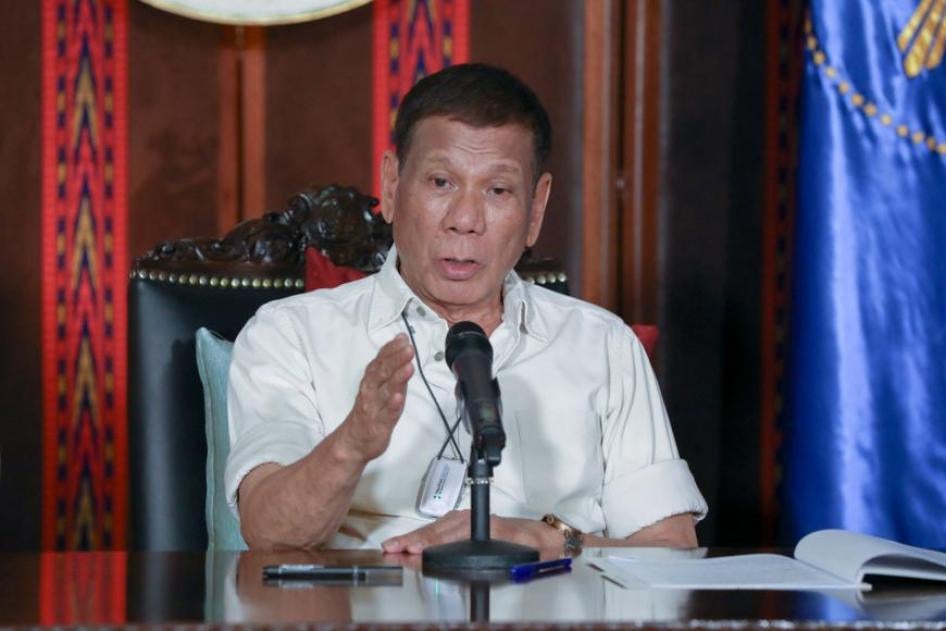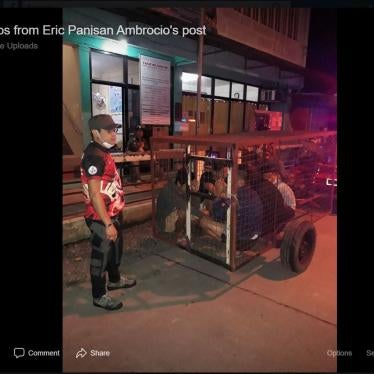In July 2019, several Latin American countries provided crucial support for a United Nations Human Rights Council resolution condemning the thousands of killings and other rampant rights abuses under President Rodrigo Duterte’s brutal “war on drugs” in the Philippines. The Latin American member states on the Council that voted for the measure and accounted for its winning margin were Argentina, Mexico, Peru, and Uruguay. While Brazil and Chile abstained, except for Cuba, no Latin American country voted against the resolution.
Passage of the Iceland-led resolution was a gust of fresh air in the otherwise horrific, and rapidly worsening, human rights environment in the Philippines. The resolution resulted in a June report by the UN Office of the High Commissioner for Human Rights which found that killings in the Philippines have a “widespread and systematic character.” Since Duterte took office in July 2016, it said, at least 8,663 people have been killed in his lethal anti-drug campaign, with other estimates reaching triple that number. Another 208 human rights defenders, journalists, and trade unionists were killed for their activities, the commissioner’s office found.
This month in Geneva, the Human Rights Council will most likely once again examine the Philippines in a follow-up to the report. It’s critically important for the council to create an independent international investigation into the human rights situation in the Philippines.
Since the “drug war” began in July 2016, thousands of Filipinos have been killed by the police and drug enforcement agencies as well as by unidentified gunmen, many of them sicarios (hitmen) working in association with police or local governments. Rights groups in the Philippines estimate that more than 27,000 have been killed. Human Rights Watch documented that 101 children were killed either in execution-style killings or by mistake during raids between July 2016 and December 2019.
The Covid-19 pandemic and associated lockdown have accelerated the killings. During the months from April to July, killings rose by more than 50 percent over the four months before the pandemic hit. This is particularly concerning because the Philippines has the worst Covid-19 situation in Southeast Asia–meaning that impoverished Filipinos locked in their homes to protect themselves from the virus are especially vulnerable to gun-wielding men kicking down their doors.
The military and police have also targeted political activists and rights defenders, journalists, political opposition members, critics, lawyers, trade unionists, environmentalists, and Indigenous peoples activists for harassment and extrajudicial killings.
Documentation by Human Rights Watch and other groups implicates the security forces in these killings and other rights abuses. In numerous drug cases, the police or their agents have planted evidence, such as weapons and drugs, on victims at the scene. The army frequently uses dangerous tactics like “red-tagging,” labeling people or activist groups as communists because they are critical of the government. Many “red-tagged” people have been assassinated by unidentified hitmen in cases that are never investigated. These practices have spawned a climate of fear of death squads and constricted democratic space in the country.
The government also has failed to hold accountable those who carry out extrajudicial killings. The authorities have investigated very few of these murders, let alone prosecuted them. Out of the thousands of “drug war” cases, only one has resulted in the conviction of police officers.
The Duterte administration has hyped the creation of a “review panel” that will examine more than 5,000 killings by the police, but this is just putting the fox in charge of the hen house. There are ample reasons to be skeptical about this panel, most notably that it includes and is being run by people and agencies who designed and carried out the “war on drugs” campaign. Countries at the Human Rights Council should not be deceived by this review panel, which appears to be solely designed to mislead countries at the council to avoid further scrutiny.
The atrocities in the Philippines need to stop. And those responsible–regardless of position or rank–need to be brought to justice. Most Latin American states on the council stood up for the people of the Philippines by supporting the 2019 resolution. The people of the Philippines are once again looking to Latin American states for support in the quest for justice.
|
Commentary
Latin America’s Support for Justice in Philippines
Published in:
Infobae
Your tax deductible gift can help stop human rights violations and save lives around the world.
Region / Country
Most Viewed
-
November 25, 2019
A Dirty Investment

-
June 3, 2025
“They’re Ruining People’s Lives”

-
January 25, 2024
“We’re Dying Here”

-
December 21, 2023
Meta’s Broken Promises

-
February 19, 2018
“All We Want is Equality”





